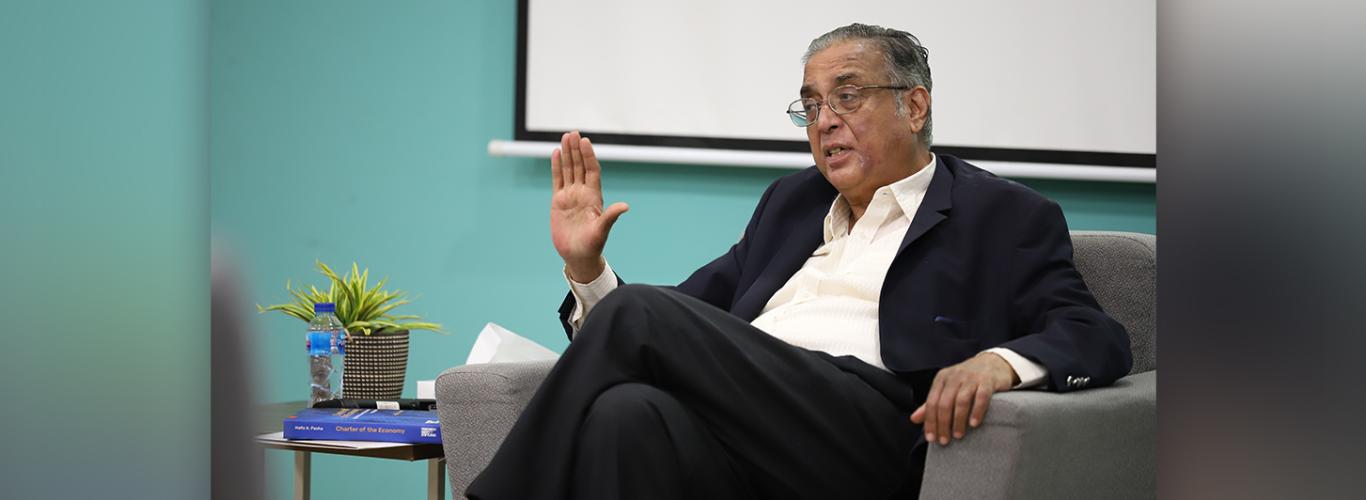Dr. Hafeez Pasha Gives Talk to Industry Leaders at LUMS
Renowned Pakistani economist and former Federal Minister for Finance, Dr. Hafeez Pasha visited LUMS to give a talk on the post-IMF challenges and opportunities for Pakistan.
Organised by Mr. Farooq Naseem, Chairman, and CEO, DWP Group at the National Incubation Centre Lahore (NICL) at LUMS, the talk was followed by a networking session with leading CEOs and industrialists from 30 organisations in Lahore. Representing LUMS were Pro Chancellor, Mr. Abdul Razak Dawood; Rector, Mr. Shahid Hussain; Member, Board of Trustees LUMS, Mr. Osman Khalid Waheed; Member Board of Governors, Mr. Faisal Dawood; Vice Chancellor, Dr. Arshad Ahmad and Director, Office of Advancement, Ms. Nuzhat Kamran.
Mr. Hussain welcomed members of the industry and praised the forum for highlighting the experiences of experts in Pakistan. “This is important in the context of learning from the experience and expertise of the speakers and to interact, discuss and probe the way forward.” He also welcomed industry leaders to come to the fore and communicate a way ahead for policymakers.
Vice Chancellor, Dr. Arshad Ahmad appreciated the untold stories of LUMS supporters who have done tremendous work behind the scenes. “It is through the continued support of different industry members that LUMS has helped create opportunities for students, while also supporting research efforts and innovations on pedagogy and teaching.”
Dr. Pasha is currently serving as Chairman of the Advisory Panel of Economists to the Planning Commission, Convenor of the Economic Advisory Council of the Prime Minister of Pakistan, and Chairman of the Tax Advisory Council of FBR. He holds a Master’s degree from Cambridge, and a PhD from Stanford and has been recognised both nationally and internationally for his work in economics and finance. His talk focused on Pakistan’s economic trajectory and its future path.
“Over 75 years, Pakistan has managed a long-term average growth of 5 per cent, which is better than India,” he said. He recalled when he met former Indian prime minister, Dr. Manmohan Singh, who credited Pakistan’s policies for helping India prosper. “When I was the under-secretary-general at the United Nations, I met Dr. Singh and he said that India has learned from Pakistan, particularly from the legalisation package of the early 90s; he said that it was exactly the kind of design India wanted. He shared that India implemented the specific steps and proposed measures.”
This is one of the reasons why India has taken off; Pakistan, Dr. Pasha explained, could not benefit from this scheme as it kept changing governments.
Dr. Pasha engaged with the audience and answered several questions on how industry leaders can come together to alleviate the economic crisis faced by Pakistan. Without the involvement of all stakeholders, surviving the economic crunch will be difficult, he said.























